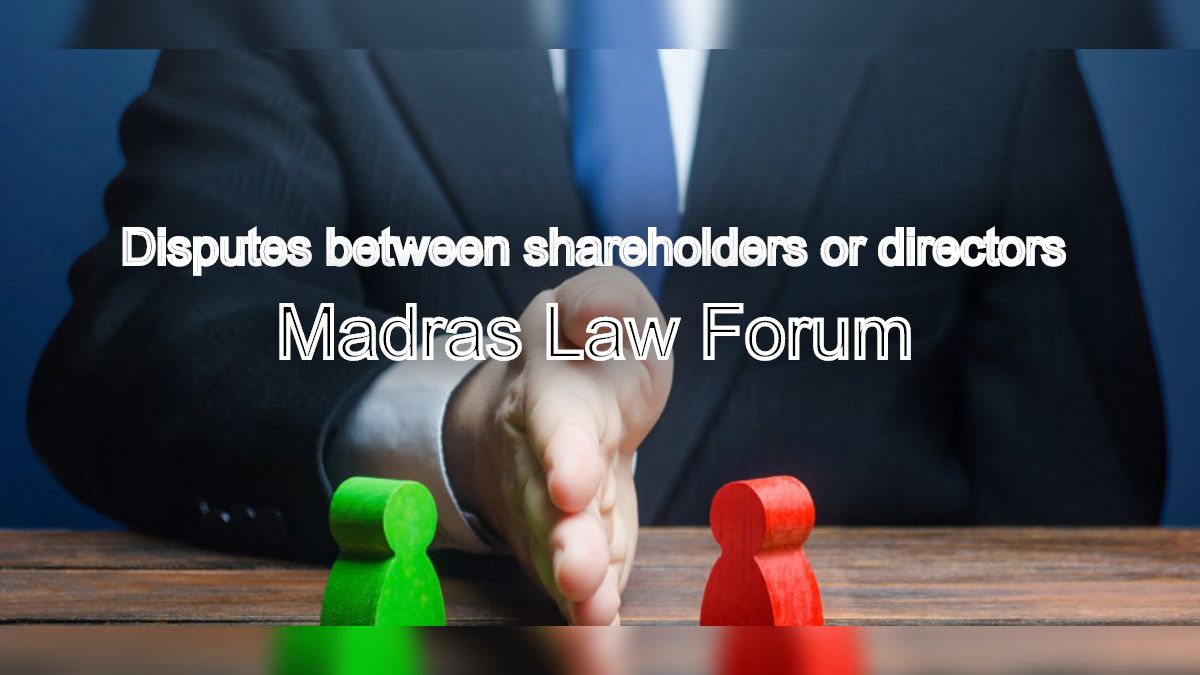Shareholder Disputes and Legal Remedies
How are Disputes Resolved Between Shareholders or Directors Under Corporate Law?
Understanding Corporate Disputes
Corporate disputes can arise between shareholders, directors, or between the company and its stakeholders.1 These disputes can range from minor disagreements to major conflicts that can significantly impact the company's operations and financial performance.

Common Causes of Corporate Disputes
- Disagreements over management decisions: Differences in strategic direction or operational priorities.
- Divisions over dividend policies: Disagreements about the distribution of profits.2
- Share valuation disputes: Conflicts arising from the valuation of shares, especially in buy-sell agreements or share transfers.3
- Breach of fiduciary duties: Allegations of misconduct or negligence by directors or officers.4
- Intellectual property disputes: Conflicts over ownership or licensing of intellectual property.
Dispute Resolution Mechanisms Under Corporate Law
Several mechanisms are available to resolve corporate disputes:
- Mediation and Conciliation:
- A voluntary process where a neutral third party facilitates communication and helps parties reach a mutually agreeable solution.5
- It is a cost-effective and efficient way to resolve disputes without resorting to litigation.6
- Arbitration:
- A private dispute resolution process where parties agree to submit their dispute to an arbitrator.7
- The arbitrator's decision is binding on the parties.8
- Arbitration offers several advantages, including confidentiality, flexibility, and expertise.9
- Litigation:
- A formal legal process involving filing a lawsuit in a court of law.10
- It is a time-consuming and expensive process, but it may be necessary in complex or high-stakes disputes.11
Role of the Companies Act, 2013
The Companies Act, 2013 provides a comprehensive framework for resolving corporate disputes. It empowers the National Company Law Tribunal (NCLT) to adjudicate various corporate matters, including disputes between shareholders and directors. The NCLT has the power to:
- Appoint an independent director or a committee of directors to resolve disputes.
- Order mediation or conciliation.
- Order winding up of the company in certain cases.12
Seeking Legal Counsel
When faced with a corporate dispute, it is crucial to seek legal advice from experienced corporate lawyers. Legal professionals can help you understand your rights, assess your options, and develop a strategic approach to resolving the dispute.13
Read More
- Civil Lawyers in Chennai: How to Choose the Expert Legal Help?
- Filing a Criminal Complaint FIR (First Information Report): Expert Advice
- What is tax law in India? Expert Taxation Lawyers in Chennai
- Can I seek legal remedies or representation for tax disputes and assessments?
- Are there any alternative dispute resolution mechanisms available for civil cases in India? Expert Advice
- National Company Law Appellate Tribunal (NCLAT):
Madras Law Forum can provide you with expert legal counsel to navigate the complexities of corporate law and resolve your disputes efficiently. Our team of experienced lawyers has a deep understanding of the legal framework and can provide tailored solutions to meet your specific needs. By understanding the various dispute resolution mechanisms and seeking timely legal advice, you can effectively address corporate disputes and protect your interests.